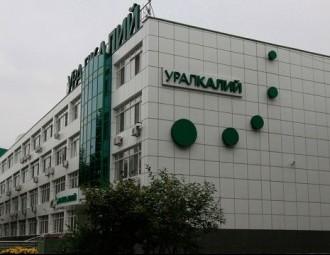Uralkalij complicates matters with Kerimov’s stake sell

Onexim Group was likely to acquire Kerimov's stake in Uralkalij; however, Uralkalij dissociates itself from the sale of Kerimov's share.
Suleiman Kerimov, the top shareholder of potash producer Uralkalij, was expected to sell his 21.75-percent stake to Russia's Onexim Group, BelaPAN said. In a press release, Onexim Group says that the parties expect the transaction to close shortly, that the deal does not require any "regulatory approvals," and that the terms of the transaction are confidential.
"The purchase of the stake in Uralkalij is a long-term investment in a company that is unique from the standpoint of its position in its industry and its role in the world economy," Dmitry Razumov, director general of Onexim Group, is quoted as saying. "We are certain that the potash industry has strong fundamentals, and that Uralkalij, as the world's leading producer and the key player in the industry, has a considerable potential for growth in value. Onexim Group, in turn, has extensive experience in managing major industrial assets and creating shareholder value in public companies."
“Over the time of our investment in Uralkalij, we have achieved the strategic goal of putting together Russia’s two largest potash producers [Uralkalij and Silvinit], which led to the creation of the global leader in the potash industry," Pavel Grachev, chairman of the board of Mr. Kerimov's investment group Nafta Moskva, is quoted as saying. "We are now moving towards different goals and challenges. And we are positive that with the arrival of the new investor, Uralkalij will enjoy new opportunities for its continued strategic development."
Mr. Kerimov is said to be ready to sell his stake amid the potash row, with banker Vladimir Kogan, tycoon Mikhail Prokhorov and an alliance of Vladimir Yevtushenkov and Mikhail Gutseriyev expressing an interest in buying it.
However, Uralkalij issued a press release, saying that the company “is not party to these sale and purchase arrangements”, reacting to the press release by ONEXIM Group issued earlier that day.
News agency Bloomberg reported on October 22 that Mr. Prokhorov's company Onexim had proposed exchanging assets, including shares and cash, for the Uralkalij stake.
Aliaksandr Lukashenka has repeatedly said that Belarus would be willing to restore its alliance with Uralkalij if Mr. Kerimov sold his stake. The Kremlin is said to be in favor of the restoration of the sales cartel as well. On October 21, Mr. Lukashenka said that he wanted Mr. Gutseriyev, an oil tycoon who is building a potash plant in Belarus, to buy Mr. Kerimov's stake.
Uralkalij has been embroiled in a bitter row with its partners in Belarus. Let us recall that Mr. Baumgertner was arrested on August 26 as he was about to fly out of Minsk after a meeting with Belarusian Prime Minister Mikhail Miasnikovich. A few days later, Belarusian authorities instituted criminal proceedings against Russian billionaire and other Uralkalij's top executives. On September 16, Russian Deputy Prosecutor General Aleksandr Zvyagintsev announced that the Investigative Committee of Belarus would hand over the investigation of the criminal case to the Russian Prosecutor General's Office. Later on Minsk City Court rejected an appeal against district judge's refusal to order the release of Uralkalij CEO; However, later on Vladislav Baumgertner moved to house arrest on the night of 26 September, hours before Russian President Vladimir Putin was scheduled to arrive in Belarus to observe a joint military exercise. Recently Belarus has changed the charges against Vladislav Baumgertner from abuse of office to embezzlement. The Investigative Committee of Russia instituted criminal proceedings against Vladislav Baumgertner on October 14 and Official Kremlin requested his extradition recently.
-
03.01
-
07.10
-
22.09
-
17.08
-
12.08
-
30.09










































